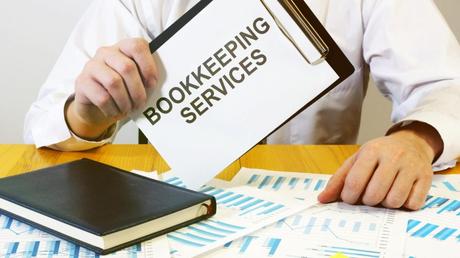
Financial hurdles for the self-employed include many bloggers and small business owners today. While self-employment is an increasingly popular life choice, there is little clarity in terms of what help individuals can access when things go wrong; and little advice available on financial planning for the future.
 How to overcome financial hurdles being self-employed.
How to overcome financial hurdles being self-employed.
So you’ve recently decided to become self-employed. Congratulations. It’s an incredible decision that can take your life in a whole new direction.
Going into business for yourself can afford you far greater freedom than simply working as an employee for an organization. For a start, you have complete control over your working practices. You can choose which clients you want to partner with. Not only that but your business hours, and the amount of work you want to take on.
You will also feel immense satisfaction when you go it alone, as you know that all your success is your own doing.
But perhaps the greatest thing about the self-employed lifestyle is the enormous level of freedom you can suddenly enjoy. No more being in an office for eight hours a day. Nor are you slaving away to earn a pitiful number of annual vacation days.
Now you can work from wherever you choose, whether it’s your home office, your favorite coffee shop, or a beach in Spain. You can take holidays whenever you want, or just a long break in the middle of the day to catch up with a friend or go for a run.
It’s easier to fit in personal commitments like healthcare appointments and childcare.
Self-Employed Financial Challenges
Few people who work for themselves can afford a top-notch accountant or financial planner. Problems they may face include falling ill or becoming a career for a sick relative.
With no statutory sick pay and no income protection insurance to cover the bills until they are better, many self-employed people simply have to work. They work when they are ill or risk a drop in income and, potentially, losing their home.
This is why we have seen a lot of self-employed people turn to the likes of Tri-merit.com to learn about taxes themselves.
Simply put, Once You Go Freelance, You’ll Never Look Back.
But on the other side of the coin, there are inherent challenges that come with being self-employed, particularly when you are just starting. Firstly, you won’t have the security you enjoy with a traditional full-time job. You may be enjoying a busy period but the work could dry up at any time, leaving you with no money coming in whatsoever.
 The day I quit the day job was an exhilarating and happy day.
The day I quit the day job was an exhilarating and happy day.
Furthermore, you also don’t benefit from many of the common employment perks, such as free health insurance, sick pay, and pension schemes. But one of the main challenges for any freelancer is having to organize your own finances.
When you work for a company, you are paid a set amount each month and your income tax deductions and pension contributions are automatically calculated for you. You don’t need any mental arithmetic whatsoever.
But as a freelancer, your income is not automatically taxed. You have to file your tax return each year and make sure that it is correct, otherwise, you might end up facing a large fine from the Internal Revenue Service.
Managing your finances may seem a little overwhelming at first, particularly if you’re not the smartest math person in the world. But the truth is, it is relatively straightforward once you know what you are doing. To help you get a start on the path to professional freedom, here is a complete guide to finances for the self-employed.
Separate Your Personal and Professional Finances
There are a lot of expenses involved with being self-employed, whether it’s website hosting, computer equipment, essential travel, or business lunches with clients. But if you’re using the same bank account for both professional and personal uses, it can get a little confusing when it comes to your annual tax return.
The best thing you can do before embarking on your freelance journey is to create a second bank account solely for business use. This will make it easier to work out exactly how much you have spent on your business, as well as your income.
Keep Track of Everything When Self-Employed
Creating a budget is one of the most useful things you can do, as a freelancer. Keep track of all your monthly income, as well as any essential business expenses. These expenses are often offset by your tax, so looking after your receipts will save you a great deal of money.
Being organized in this way will make your tax return incredibly simple and pain-free. Not to mention the fact that it will reduce the likelihood of mistakes that could land you in hot water with the tax man.
 Learn to keep track of all your expenses when self-employed.
Learn to keep track of all your expenses when self-employed.
Start Saving for Retirement When Self-Employed
When you are self-employed, you don’t have a pension as a standard. Initially, you are happy at the fact that you’re no longer seeing a deduction from your paycheck each month.
But by the time you retire, you will almost certainly wish you had been more proactive.
It’s a good idea to start saving into a pension fund as early as possible. This will allow more time for its value to grow and give you some security. That is in the event that you’re no longer able to work when you’re older.
Use Bookkeeping Software
Many self-employed workers use an Excel spreadsheet to organize their finances. In the early stages of your business, this may be a workable solution. Your income and outgoings are minimal, so it’s relatively easy to keep track of everything.
But as you land more clients and see more money going in and out of your bank account, you may need a comprehensive solution. A dedicated accounting software solution can make your life easier in so many ways. Each platform is different, but common functionality includes paying bills, sending invoices, storing receipts, claiming expenses, and tracking mileage.
Although this comes with a small monthly cost, it is often worth it for the time you save. And then, the confidence you are managing your money effectively.
 Be sure to use bookkeeping services for self-employment.
Be sure to use bookkeeping services for self-employment.
Hire A Bookkeeping Company
The only guaranteed way to ensure your finances are in working order is to hire a professional bookkeeper to manage them for you. An accountant or bookkeeping company will take all the work out of your hands.
First, all you need to do is give them access to your finances. Then, they will organize your tax return, your expenses, and invoices. Even if you think you’re perfectly capable of doing this yourself, there are many other reasons to hire an expert.
For a start, they will be able to identify any errors you make or opportunities for saving money on your taxes. It can be expensive but remember you are paying for a qualified expert to do the job. And the best accountants will always save you more money than they cost.
Consider Signing Up With a PEO
Signing up with an online payroll application through a PEO (professional employer organization) will address much of this.
When the PEO becomes your employer, you gain access to a work-based pension as well as holiday pay, statutory sick pay, maternity, and parental leave.
You’ll also benefit from insurance to protect your income and the work you do for your clients.
When the PEO becomes your employer, you gain access to a work-based pension as well as holiday pay, statutory sick pay, maternity, and parental leave.
Click To Tweet
What About Lending When Self-Employed?
There are many people that are finding themselves in a position where they need to lend money for their business. With so many lenders offering loans nowadays, it can often be difficult to find the right one for you. Keeping that in mind, read on to discover the various factors you should consider to help you do so.
The first thing you need to do is make sure the lender is able to lend you the amount of money you require. However, it is vital to be realistic. The company isn’t merely going to hand over whatever amount you desire.

You don’t want to borrow more than you need to, as it puts you in a worse situation.
With so many lenders offering loans nowadays, it can often be difficult to find the right one for you. #smallbusiness
Click To Tweet
Repayment Terms for Self Employed
The next thing you need to do is assess the repayment terms. You must be certain that you can comfortably make the repayments outlined. Assess the interest you are going to have to pay to ensure you will have enough money to cover it.
In addition to this, you will need to discover how long you have to pay the loan back. Then, how are the repayments i.e. monthly or quarterly?
You need to be certain the loan fits in with your situation, as everyone is different. If you carefully evaluate the amount you can borrow. As well as the amount you will be paying back. Then figure out how you will make the repayments. Then, you should be able to find the right loan for you.
In Conclusion of Financial Hurdles For The Self Employed
Don’t forget to set aside money for taxes if you have to pay self-employment taxes. If you have been with a company prior to being self-employed this takes some getting used to!
Be sure to price your rates for your services and products accordingly as you’ll have to pay taxes.
When negotiating rates as a freelancer, remember that you’re gonna need to save about 30 percent for self-employment taxes.
So that $50 is really $35.
That $100 is really $70.
And that $200 is really $140.#freelancewriter #Entrepreneurship— Kaitlyn Arford (@kaitarford) September 2, 2020
Running your own business can make you wear many hats today. Of course, if you can hire others (like a financial adviser or an accountant) to do the jobs that will save you time. That time is the time you can work your business to increase your income and your business for the future.
How are you managing your finances and taxes as a self-employed blogger or small business? I’d love to know more in the comments below!
Be sure to price your rates for your services and products accordingly as you'll have to pay taxes. #InspireToThrive
Click To Tweet

